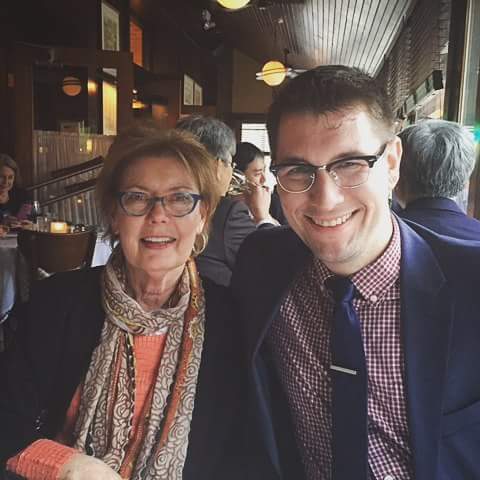Without the Affordable Care Act (ACA), staying well could have wiped out his savings — making it much harder to get back into the workforce.
 Living with generalized anxiety disorder and panic disorder can be challenging enough under the best of circumstances. But having to manage these mental health conditions while trying to find a new job is even tougher — especially if you’re not sure how you’re going to pay for the medication and doctor’s care you need.
Living with generalized anxiety disorder and panic disorder can be challenging enough under the best of circumstances. But having to manage these mental health conditions while trying to find a new job is even tougher — especially if you’re not sure how you’re going to pay for the medication and doctor’s care you need.
That was the reality faced by Ryan Smith, who worked for the Michigan House of Representatives until the 2014 election, when he lost his job. He was diagnosed with generalized anxiety disorder and panic disorder in 2013, and considers himself fortunate that his illness can be managed with medication. But when he lost his job, he also lost his health insurance — and the work he had done to advocate for the Affordable Care Act (ACA), or Obamacare, in Michigan became very personal.
“I was privileged enough to help fight for Medicaid expansion in Michigan,” Ryan says. “In the stories our constituents told, I saw all the ways a lack of health insurance could derail a life. I never imagined I would be the one who needed help.”
Ryan’s conditions fall into the category of what’s known as an “invisible illness.” You can’t see them, but they’re just as real as a physical illness or injury, and must be treated accordingly.
People don’t know I have this illness, but it’s there. It impacts my daily life.
A panic attack is hard to explain to someone who has never had one. The first time you have one, you think it might be a heart attack or some sort of respiratory failure. It’s your body responding to a threat that’s not there — like there’s this giant tiger chasing you. Your heart speeds up, blood rushes from your head, everything feels like it’s moving quickly. You get this overwhelming sense of dread. It’s very scary, no matter how many times it happens.
When I’m off medication, this happens two to three times a day. It’s debilitating. This illness doesn’t pay attention to what’s on your schedule, that you have a job interview in 20 minutes. It’s challenging. But with medication, it doesn’t happen at all. I’m very lucky that my course of illness responds to medication.
Staying on his medication — and seeing his doctor every couple of months to make sure it’s working as it should — is essential for Ryan to manage his illness. With insurance, he pays about $6 a month for his two medications. Without insurance, the cost is $260, and that doesn’t include doctor’s visits.
After losing his job, Ryan turned to HealthCare.gov, where he was able to find health insurance for less than $250 a month. This coverage helped him keep his anxiety and panic disorder under control until he found a new job at a law firm in Chicago that provides health insurance. But Ryan, now 27 years old, still thinks the ACA is vitally important and should not be repealed.
I’m one of 300 million people in this country. I’m not the only one who lost my job. I understand in a way that’s incredibly personal that the rug can be ripped out from under you at any time. Everyone needs health insurance.
The ACA isn’t perfect, but it sure does allow for a lot more flexibility in terms of how we live our lives. Without the ACA, I would not have been able to move and find a new job if my savings had been obliterated by healthcare costs. I’m able to plan for the future in a way I didn’t think I’d be able to after I walked out of my job for the last time in November 2014.
Contact your Representative in the U.S. Congress HERE and your U.S. Senator HERE. Urge them to vote against repealing the ACA unless a replacement plan with the same level of coverage and consumer protections is enacted at the same time.
Has Obamacare helped you or someone in your family? Tell us about it HERE if you’d like to be considered for a future post.
[Photo courtesy of Ryan Smith, pictured with his mom.]



